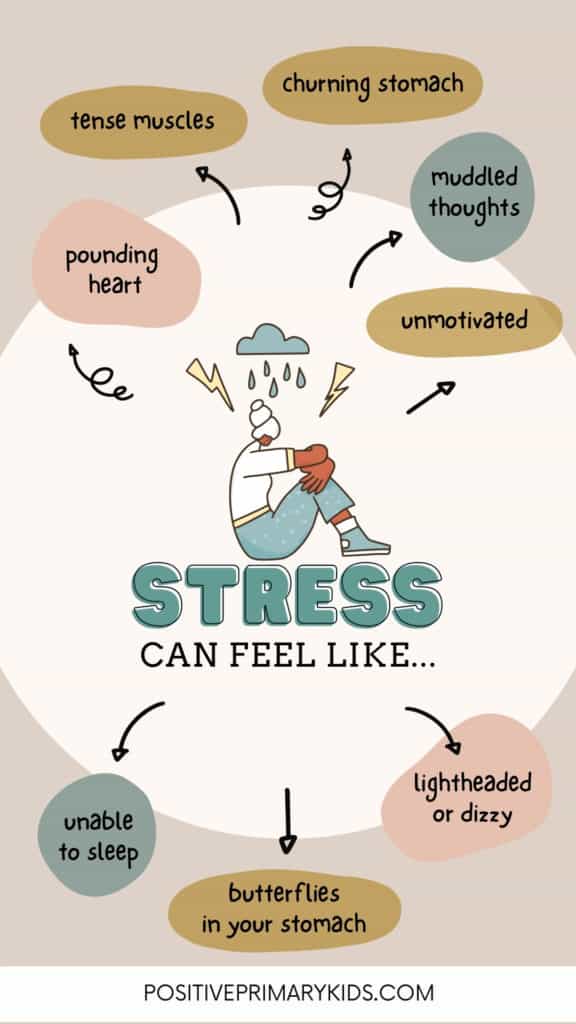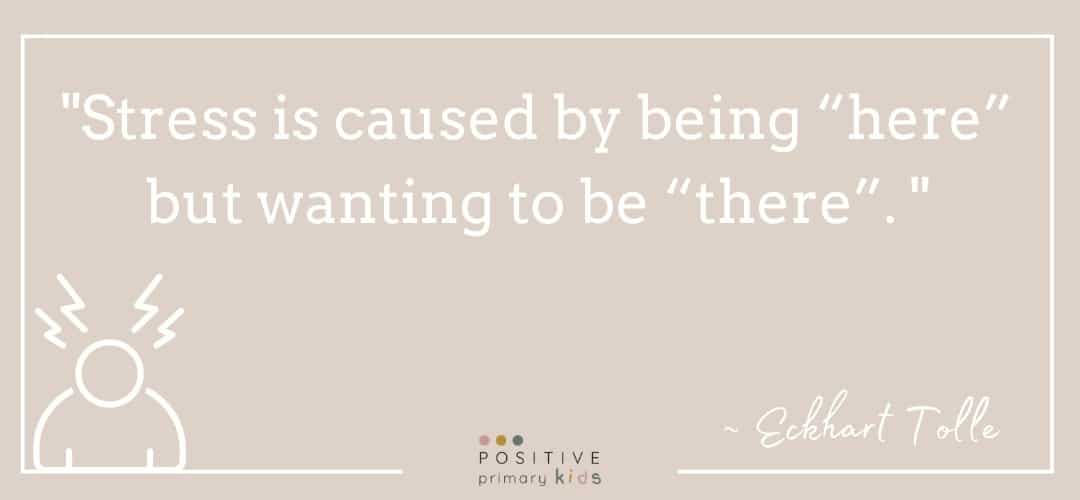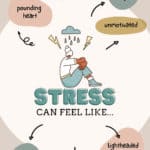April is Stress Awareness Month, which is now in its 30th year. Understanding stress and how it affects us has never been more important. Stress awareness month’s main purpose is to raise awareness of the widespread and escalating nature of stress as well as to help break the stigma around it.
The demands of modern life are causing emotional and mental pressure to mount across society leaving increasing numbers of individuals feeling completely overwhelmed.
It’s not just adults that are battling stress. Stress in childhood is on the increase too.
As someone who has experienced many mental health struggles throughout my life, I am passionate about helping families become more aware of stress, understand its causes and know that some stress is actually good for us!
This article is part one of a series all about understanding stress. In this post, we’ll look at stress in general. In the next post, we’ll be looking in more detail at childhood stress.
Affiliate Disclosure: This post may contain affiliate links. This means that I may receive a small commision – at no cost to you – if you make a purchase through these links. Thank you for your support!
What is stress exactly?
When was the last time you heard someone say, “I’m so stressed.” or “This is stressing me out!”? I’m willing to bet that it wasn’t long ago at all! But do you know what stress actually is and why we experience it?
Stress is a completely normal and natural part of being human that we all experience regularly. In simple terms, stress is a response in your body that you get when you experience a situation that makes you feel upset or threatened in some way. It’s the feeling you get from any type of physical, mental or emotional pressure.
Situations that cause stress are called stressors. They could be an actual threat to your safety, such as someone approaching you with a weapon. Stressors also include little things that don’t represent an actual danger, like running late for a meeting.
When we experience stressors, our brains trigger stress hormones that cause physiological responses in our bodies. This reaction, which is automatic, is called the stress response, otherwise known as the ‘fight, flight or freeze’ response.
The stress response causes a wide range of familiar symptoms. These symptoms include:
- Dizziness
- Pounding heart
- Sweating
- ‘Butterflies’
- Tense muscles
- Churning stomach
- Muddled thinking
- Restlessness
- Difficulty sleeping

Is stress always bad?
We tend to think of stress as a negative thing. This ‘bad stress’ is known as distress. But there is also a type of stress that is helpful!
This ‘good stress’ is called eustress and it is actually beneficial in our lives. The thrill of a theme park ride, the buzz of coming first in a race and the sense of fulfilment when learning a new skill are all examples of eustress.
Eustress can boost motivation and focus and create a feeling of excitement. Experiencing eustress feels great, so it encourages us to try new things, take on challenges and lead more satisfying lives.
In fact, if we didn’t experience any stress at all, we would be stuck in permanent boredom and inactivity with zero desire to achieve anything!
Types of Stress
As we’ve seen, there is good stress and bad stress. However, stress should be temporary. After we experience stress responses, our bodies should return to their normal state. Breathing and heart rates should return to their regular rate, headaches should fade away. But, if we frequently experience stressors, stress response symptoms can become harmful.
There are several types of stress, which can be grouped according to their severity and frequency. These include:
- Acute stress
- Episodic stress
- Chronic stress
Acute Stress
Everyone experiences acute stress. It includes the ‘good stresses’ we looked at earlier in this article, as well as less pleasant situations such as witnessing an accident or having an argument.
With acute stress, symptoms are short-term – stress response symptoms occur very quickly, but also return to normal quickly.
Episodic Acute Stress
Although acute stress is usually harmless, if it is experienced frequently it can lead to episodic acute stress.
Episodic acute stress can be exhausting, both mentally and physically. You may feel like everything is going wrong and that you are out of control.
Chronic stress
Stress becomes chronic if you’ve been experiencing high-stress levels for an extended period of time.
Chronic stress can be seriously harmful to mental and physical health and cause long term problems because your body doesn’t have enough time to recover from fight, flight or freeze response symptoms.
Did you find this helpful in understanding stress better? It’s such a complex topic, but so important! If you think someone you know would benefit from this post, please forward it to them or share it on your social media.
Look out for part two of this series next week, when we’ll be taking a closer look at childhood stress including its causes, signs and symptoms as well as tips for managing it.
If you are concerned about stress and it’s affecting your life, please contact your GP for help. I’ve also included some useful links below.
Get help with stress | NHS
Helplines | Mind – Mental Health Charity
Getting help for my mental health and how to access support | Mental Health Foundation








0 Comments